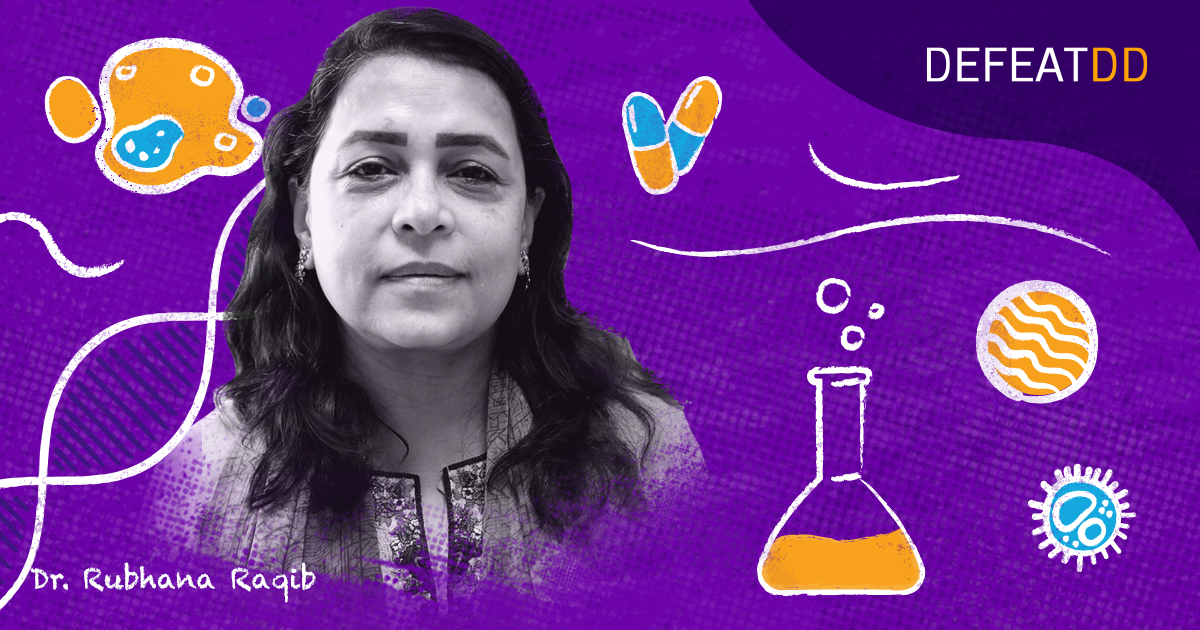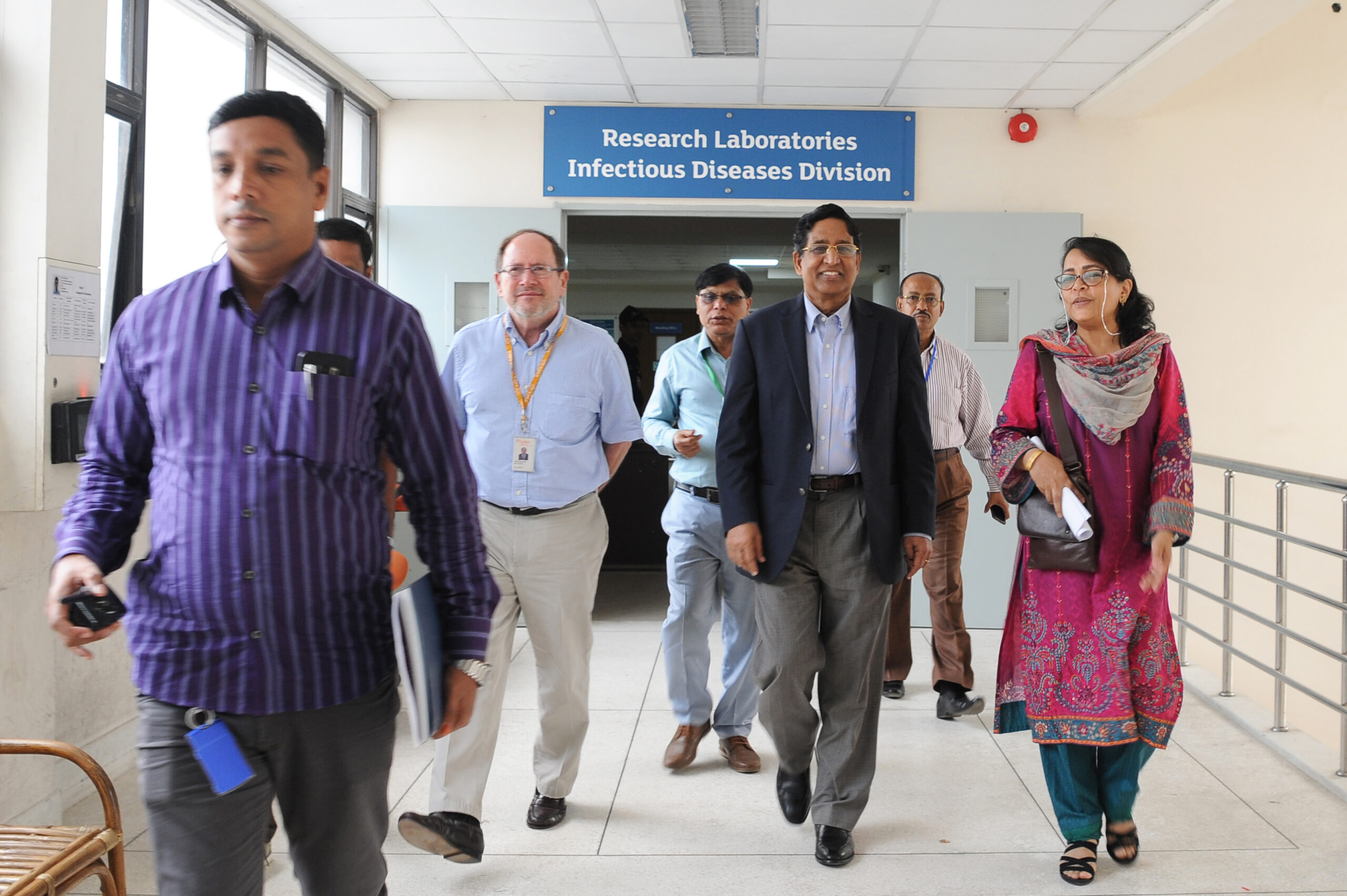
Charting her own path to saving lives: 4 questions for Dr. Rubhana Raqib

“I think building a career in science is really great for women. It gives them self-respect. People value a scientist’s opinion.” – Dr. Rubhana Raqib, World Academy of Sciences Fellow
In January of this year, Dr. Rubhana Raqib was selected as one of 35 new Fellows in the World Academy of Sciences, in recognition for her work in the category of ‘Medical and Health Sciences,’ in particular enteric and infectious diseases. She was one of a record number of women inducted into TWAS this year – a vanguard of powerful female scientists setting new standards for saving and improving lives through research and science.
In celebration of International Women and Girls in Science Day, we were lucky enough to catch up with Dr. Raqib. We wanted to know how she became a scientist, what it’s like to work in a traditionally male-dominated field like scientific research, and what advice she has for girls who might want to follow in her footsteps. Here’s what she had to say.
What was your path to becoming a scientist?
My father was a pilot in the Air Force, so I always wanted to be a pilot when I grew up.
I was also good at painting. When I was young, around 12-13 years old, I also used to draw sketches and loved painting. I would get so engrossed in it that even if someone shouted my name, I would not hear it.
My mother did not like how serious I was getting about painting, and she definitely did not think I should pursue it as a profession.
After high school, my father wanted me to study medicine, but I wanted to study Architecture because it included arts and designing. I was admitted into the Medical College but not into the Engineering University. Since I was not keen to become a doctor, the next best thing was to get myself admitted into the Department of Biochemistry and Molecular Biology in Dhaka University to study biological science.
Once I started the classes I loved the subject and enjoyed the lectures so much, thanks to some excellent teachers, that I began to rethink my resistance to a Science career. After I completed my Masters degree when I joined the International Centre for Diarrhoeal Disease Research in Bangladesh (icddr,b) to enroll into a PhD program with Karolinksa Institutet in Sweden, I knew I was on the right track.
That is how it began.
What does it take to be a scientist in a field that has been so traditionally dominated by men?
To build a career in biological science and to achieve success, a female scientist has to work harder and always be one step ahead of their male counterpart. However, the most important thing in a female scientist/researcher’s life is to get support and encouragement from the family. This factor can make or break a career.
You also need a lot of patience and passion to be a good scientist. Not only do you need to strive, but you also need to love the science/research that you are doing. It’s important to not feel pressured to carry out the research work but rather to do it with lots of enthusiasm.
Fortunately, the interesting results that often come at the end of the experiments can really boost your energy and enthusiasm.
What is the most rewarding part of working in the field of vaccines and child health?
It’s been rewarding for me to see how child health can be improved after studying for several years the mechanisms of how the body responds to the infections and the difference in immune response between adults and children to defend against diarrheal disease and respiratory illnesses.
One of the most important approaches is vaccines, which is a rather quick solution of protecting children against recurrent infections of diarrhea and respiratory illness. Vaccination protects against other related/associated diseases, prevents wasting /malnutrition caused by recurrent infections, allows unhampered growth of children (or prevents growth faltering).
Thus, with vaccine research conducted in clinical trials, it’s possible to see a direct impact on public health, whereby a clinically proven vaccine can help thousands of people to live healthier lives.
What are your top 3 pieces of advice for girls who are interested in pursuing a career in science?
I think building a career in science is really great for women. It gives them self-respect, and people value a researcher’s/scientist’s opinion. It can build confidence for girls and give an edge in many areas of life.
Here’s my advice for girls who want to pursue a career in science:
1. Be passionate about your research. Be committed to your work while also trying to enjoy the work that’s required for research.
2. Make sure to plan your research activities in advance, carefully considering the limitations. Always have a backup plan (“Plan B”) to solve the problems if the original hypothesis or idea does not work.
3. The research is evaluated based on a person’s capacity to decipher the scientific issue. There is no difference in how a man would solve a research question compared to a woman. Science is an area where ideally there should be fewer gender biases.



